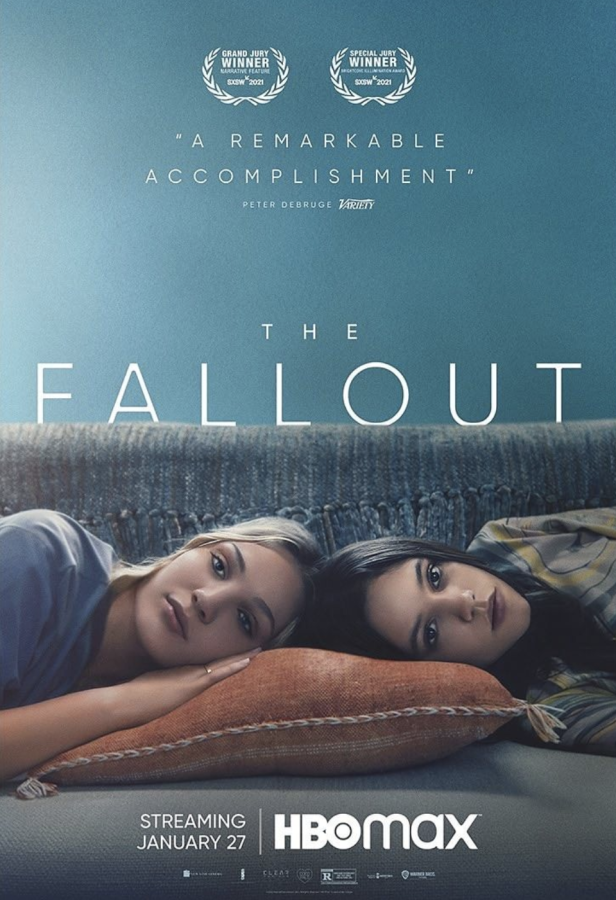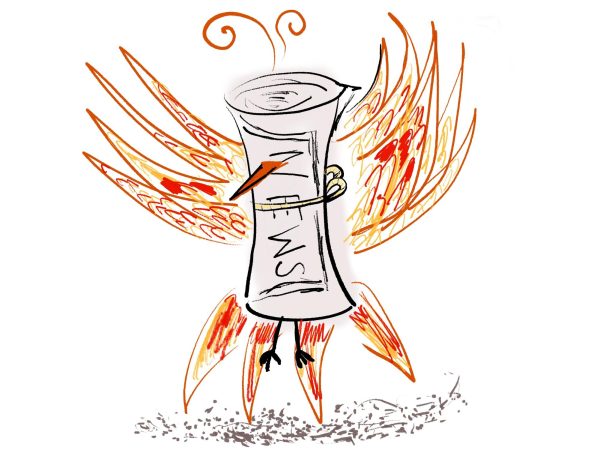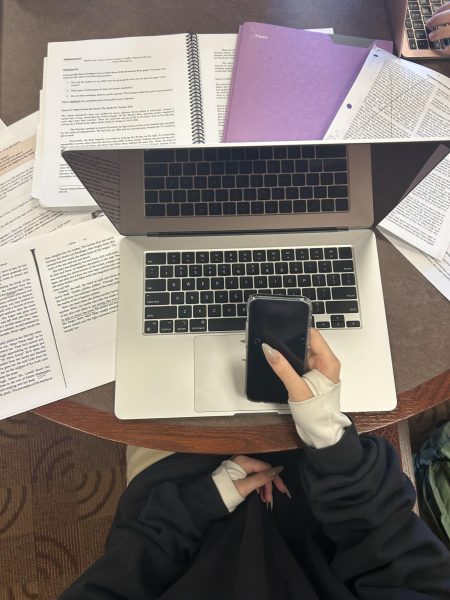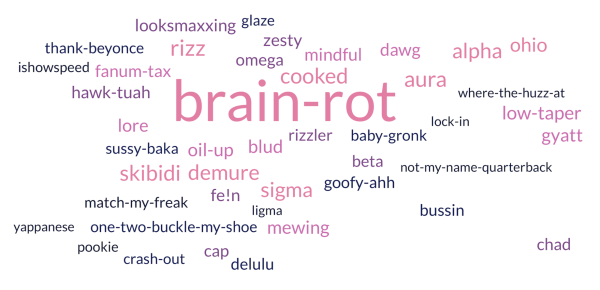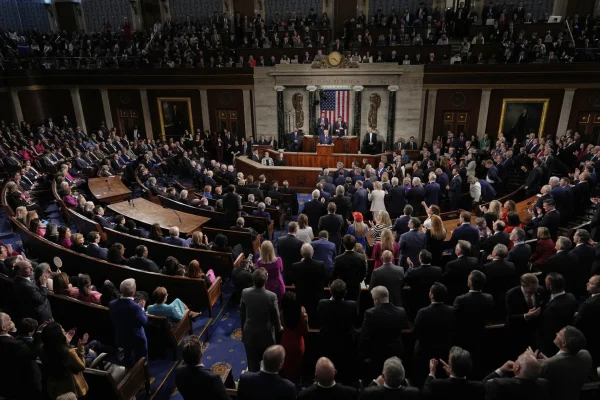“The Fallout” Does Not Fall Short
The Fallout, starring Jenna Ortega and Maddie Ziegler, started streaming on January 27, 2022, and was met with overwhelmingly positive reviews.
Within the first ten minutes of “The Fallout” the viewers are on the edge of their seat with anticipation as the screen shows two young girls crouched on a toilet seat in a school bathroom, gunshots ringing out in the background. Available for streaming on HBOMax, the movie premiered on January 27, 2022. Receiving a 92% rating on Rotten Tomatoes, the one-hour-and-32-minute movie is painstakingly accurate.
Although the drama is focused on a complicated topic, it is handled very carefully and efficiently throughout the movie. Megan Park, the director, takes the idea of trauma following a school shooting in a non-stereotypical direction. The main character Vada, surprisingly, avoids the generic route of recovering from trauma and instead does quite a few things outside of her comfort zone.
Additionally, with taking the idea of trauma after a school shooting in a different direction, Park casts Jenna Ortega and Maddie Ziegler, who are both 19, as the high school students, Vada and Mia. It is refreshing to see actors and actresses, who are not in their late twenties to early thirties, playing high school students.
The film is centered around a sensitive topic and carefully acknowledges that, much like how the media sometimes withholds names, and information about a shooter. Despite the fact that the opening scene of a school shooting is a pivotal moment in the film, there is no viewing of the shooting, victims, or shooter. Only the sound of gunshots.
Ortega and Ziegler are both in the bathroom in the hallway where the shots are fired. Ortega plays an awkward 16-year old girl contrasting to the more polished and confident character Ziegler plays. There is extreme tension and a sense of fear for the girls as they hide in the bathroom stall. The shooter could rush in at any moment and find them huddled together on the toilet seat softly sobbing. In this instant, a strong bond between two unlikely friends is born. After a few moments, another character enters; Quinton, played by Nicholas Fitch. This unlikely group works through their trauma with their newfound friendship through the rest of the movie.
The movie undoubtedly connects to how our generation reacts to events like these. Mick LaSalle, a film critic, wrote in the San Francisco Chronicle, “If you’re not or haven’t recently been in high school, one of the things that will jump out at you from this film is the way young people take school shootings — not for granted, because they’re terrified, and not fatalistically, but with a grim understanding that this is their reality.” Vada undergoes many changes in her reactions to the event. She grows away from her parents and sister, played by Julia Bowen, John Ortiz, and Lumi Pollack.
In further attempts to appeal to Generation Z, there are many allusions to our popular culture. Small details such as a Black Lives Matter movement sign hanging in a window, substance abuse in Mia’s hot tub, and numerous masks caught viewers’ eyes. There are also many references to social media. Pollack’s character Amelia, Vada’s younger sister, makes TikTok dances in the background, and Mia has a flourishing Instagram platform with 80,000 followers. Additionally, Vada and Mia start off texting and FaceTiming before they ever meet in person again after the shooting. These small, inconsequential details provide a sense of comfort; making it more relatable to the audience it is targeted at.
The movie is distinct from any other school-shooting-centered film. Instead of all the attention going to the event itself like in “Elephant” (2003) or focusing on the parents of the shooter like in “Beautiful Boy” (2010); it is focused on the raw reaction to the event from select survivors. Vada never participates in any activism, contrary to many of the Parkland kids. David Hogg, Emma Gonzalez, and Cameron Kasky, all survivors of the Parkland school shooting, were able to start the nationwide #NeverAgain movement within five weeks that followed the shooting. Her former best friend Nick, played by Will Ropp, can not seem to understand why she does not participate in the protests he is organizing. Rather, she lies in bed, does lots of drugs, experiments sexually, and drinks a lot. This validates the uncertainty of the varied responses one can have to trauma. New York Times journalist Claire Schaffer wrote, “Her impulsive, bizarre and, yes, even funny outbursts as she tries to reckon with the shooting paint a grounded and compassionate picture of adolescent grief.” Vada slowly comes to terms with the event through her relationship with Mia.
She tests her boundaries with Mia throughout the movie, but she never becomes an addict or an alcoholic. Once Vada summons enough courage within herself to return to school, she abuses a substance. Vada is allowed to make mistakes, playing into the non-linear path grief and survivors’ guilt can take.
The end of the movie is intriguing and an interesting choice. It is fairly unexpected, and gut-wrenching, but illustrates how trauma can not just be forgotten rather it grows with you. Similarly, it shows how events such as school shootings happen much more often than anyone could expect.
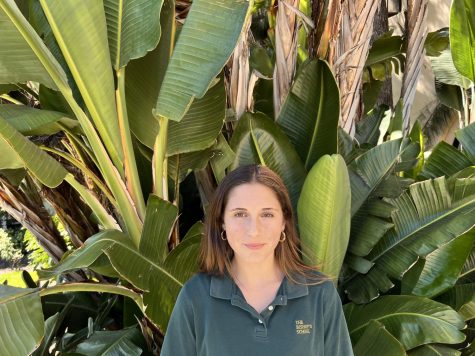
Bella Gallus is a senior and the Managing Editor for The Tower. Bella relies on her Spotify playlists, carefully curated for each of her moods, and her...


